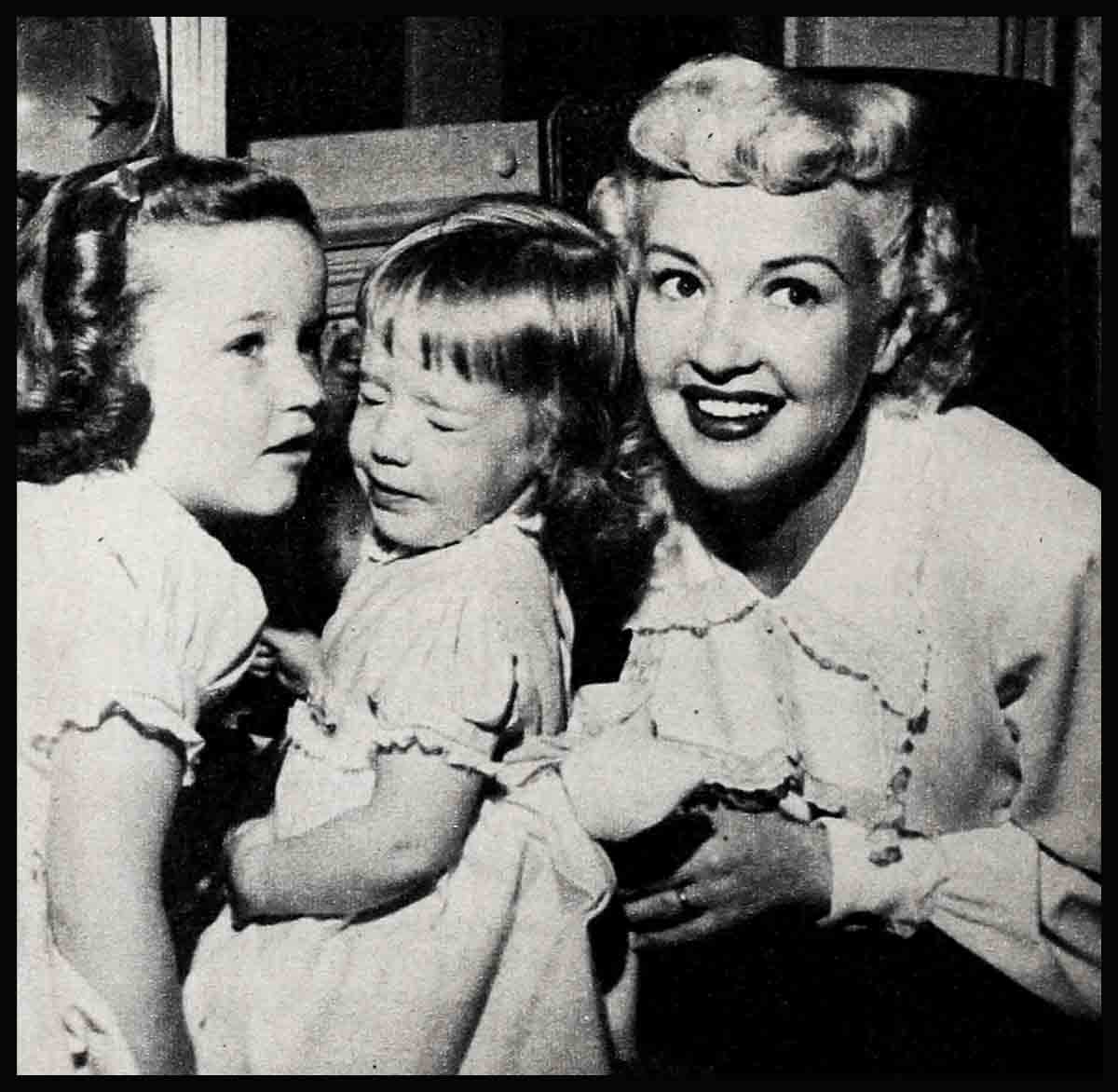
When They Believe Their Publicity
I was lunching with Jennifer Jones in the Twentieth Century-Fox cafe. She was sweet, friendly, cooperative, grateful, a little naive, and. very humble. Afterwards on the set, I said to her director, “Now there’s a girl who’ll never change, no matter how famous she gets to be.”
Which just goes to show you, there’s no fool like a reporter on the Hollywood beat. Overnight almost, with the success of “The Song of Bernadette,” Jennifer changed. She seemed to forget that in Hollywood no one person is responsible for a success. It’s a conglomeration of talent, a good script, fine direction, a little luck, and a lot of publicity.
I’ve been covering the Hollywood beat for a long time now. I’ve seen the stars come and I’ve seen ’em go. And it’s the oddest thing, or is it, but when they’re coming up they’re so cooperative, so eager-beaver. Ditto for when they’re going. But that in-between-time when they’re sitting on top of the box office world, that’s all, brother!
That’s why I’m so grateful for boys and girls like Bob Hope, Dan Dailey, Loretta Young, Esther Williams, June Allyson, Gregory Peck, Linda Darnell, Alan Ladd They are the same nice people today, and wear the same size hats, as when I interviewed them when they first came to Hollywood.
I guess it’s pretty hard to keep your head when all about you are losing theirs over yours.
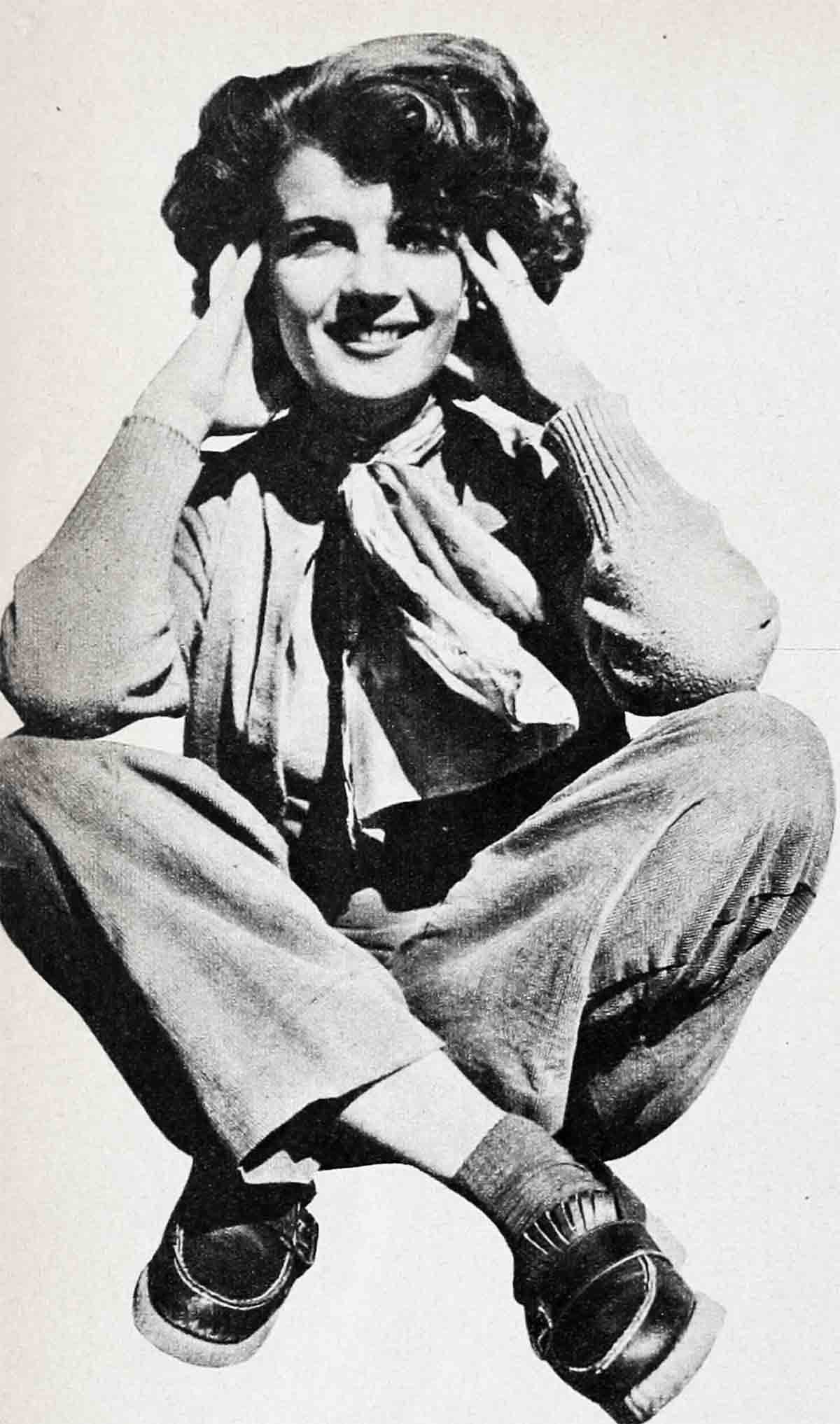
And everyone certainly lost theirs over Hedy Lamarr. You can always tell when Hedy is upsy or downsy. When the reviews rave, so does Hedy, non-cooperatively speaking. Like when Cecil B. De Mille asked her to do some publicity chores in New York for “Samson and Delilah,” Hedy said, “Not unless I’m paid for it.” She received $100,000 for making the movie, and even the scheming Delilah of the Bible would have said, “That’s a lot of ducats,” and thrown in a little time, for But not Miss Lamarr.
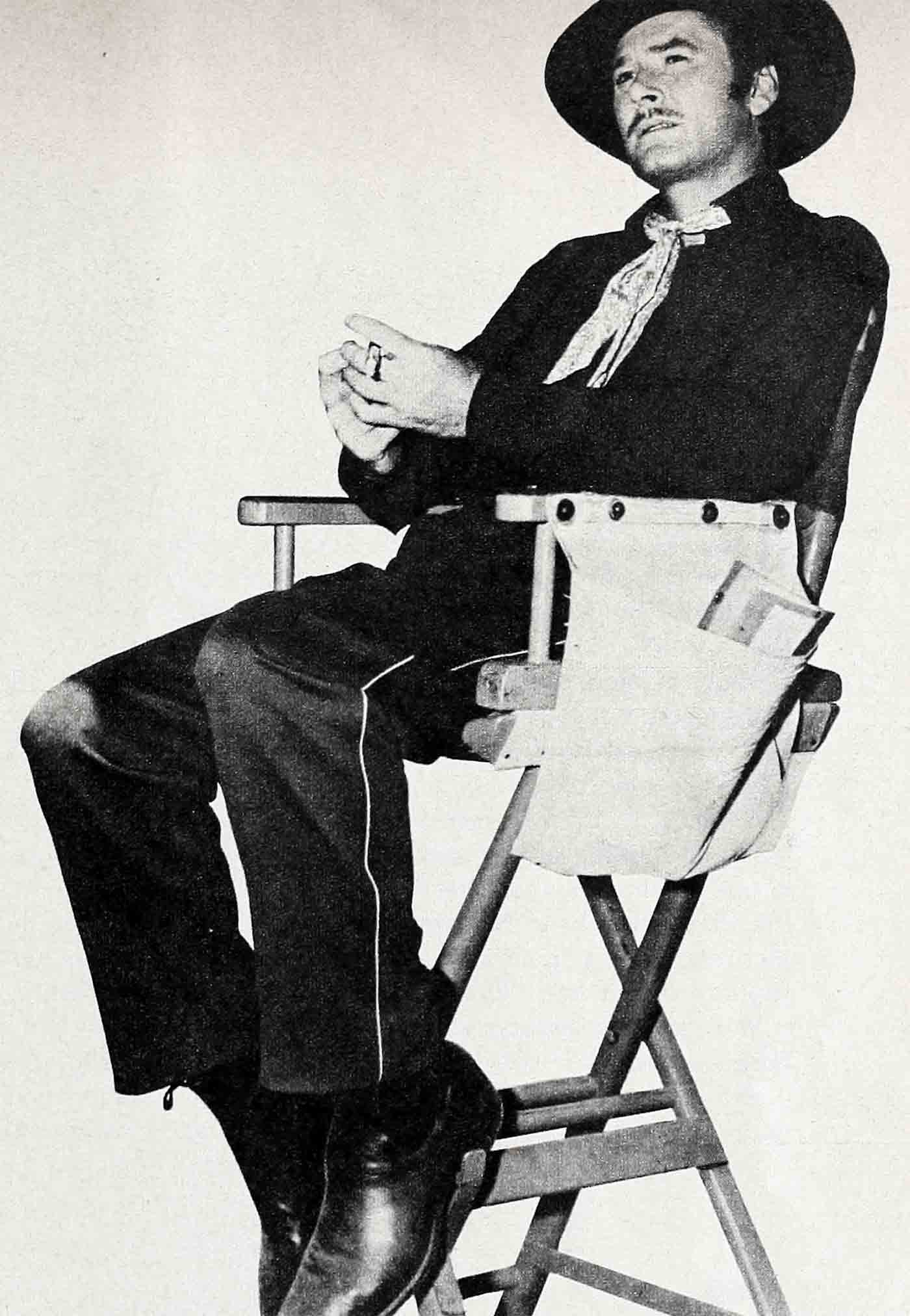
Olivia de Havilland recently refused to attend a dinner, at which she was named one of the Best Actresses of the Year. Every top studio executive was present, also the brightest stars in the business. Olivia’s absence was explained this-a-way. She believed she’d be doing more for the dinner than it could do for her! This can’t be the same Livvy who was so loved in her early Warner days. Or the same girl who used to hang around the Warner publicity department to get her name in print.
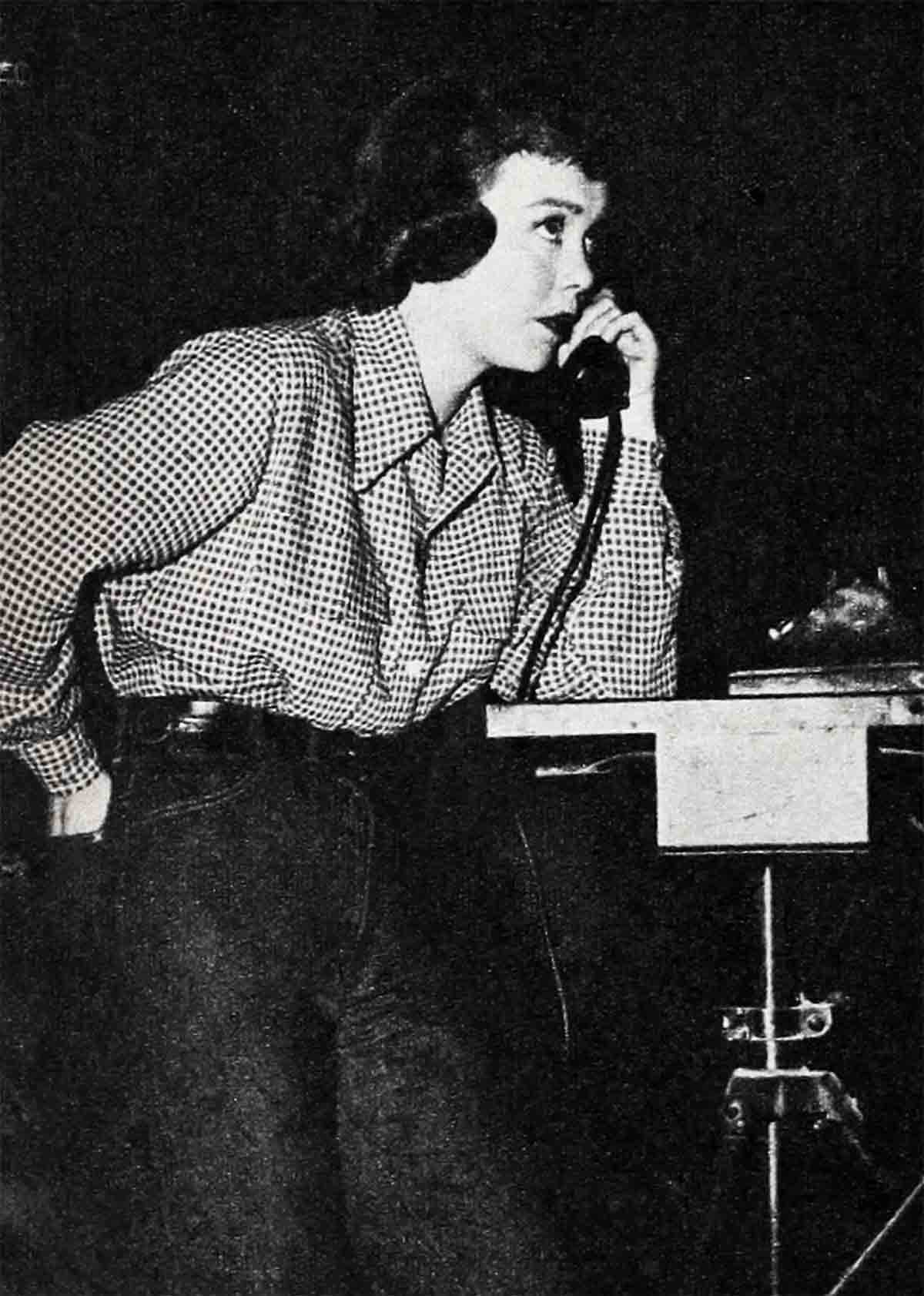
When Jane Wyman was trying to get going with her Hollywood career, there was nothing, within reason, that she wouldn’t do. I remember the stormy boat trip Jane took to San Francisco to publicize John Garfield’s “Sea Wolf” which she wasn’t even in!
Nine years and one Oscar later, Jane is always in a hurry going somewhere. And if she isn’t on the run, she’s lying down in her dressing room. And there’s never a, “Won’t you come in and sit down.”
I didn’t know Betty Grable when she was doing the Collegiate B Circuit at ParaIt was just before my time. But I did meet Betty when she returned here in triumph after her “Dubarry Was a Lady” hit in New York. No one could have been easier to handle then. Apparently they don’t believe the success is real until they read all about it in the movie columns and movie magazines. Because with Betty’s big pin-up fame in pictures, came the bigger letdown in publicity cooperation.
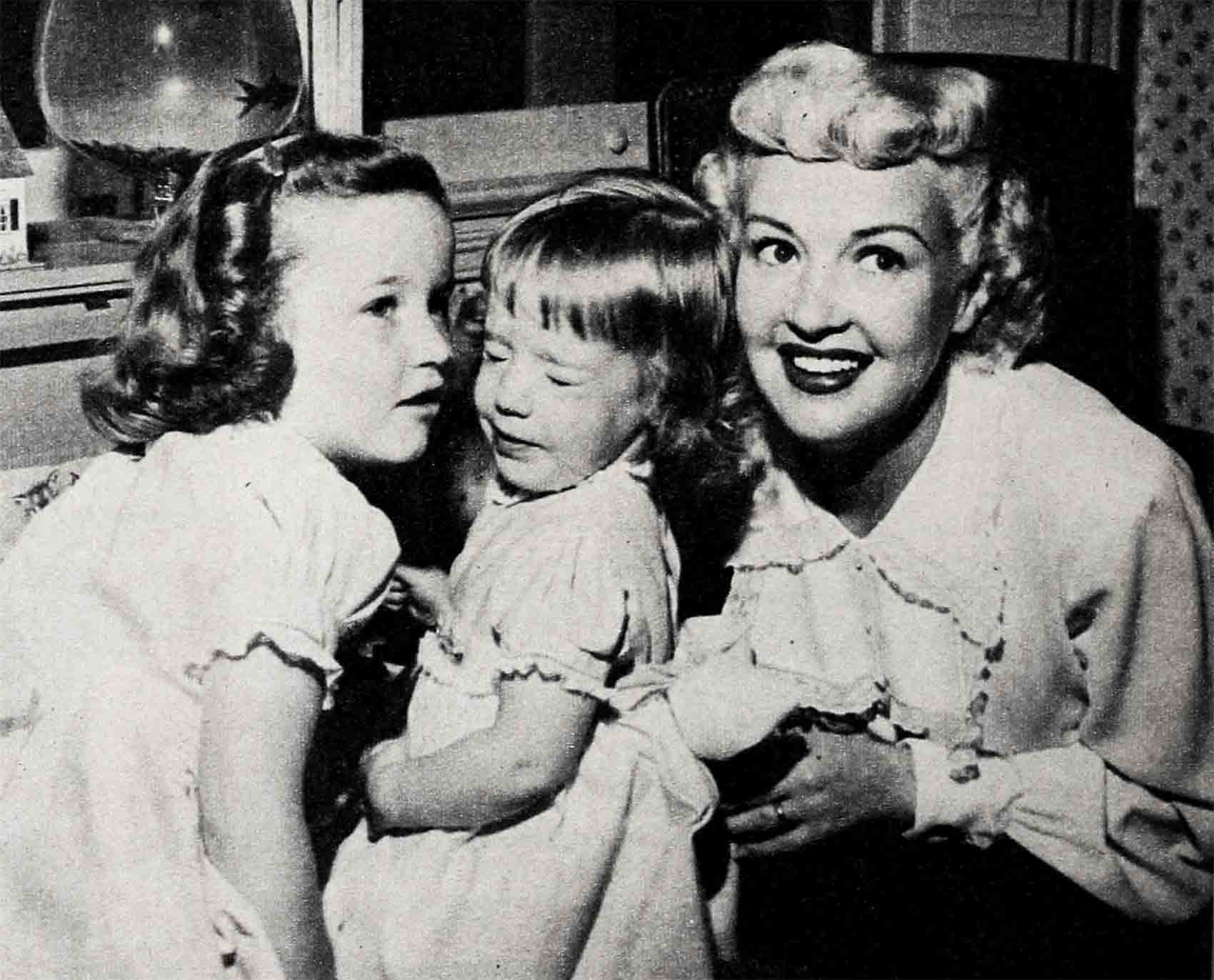
To be quite frank, Betty doesn’t need the overblown blurbs at this stage of her career. She may, later, of course. When that time comes, as come it always unfortunately does, the magazine wanting that color shot of Betty in 1942 will remember what happened. The photographer sat on the set all day long, waiting for Betty to find ten minutes to pose for his picture. She was to be crowned queen of something. Came 6 p.m. Betty sauntered to her dressing room. The photographer stamped his feet to bring back the circulation, and arranged his equipment. Five minutes later, Betty emerged minus make-up and wearing slacks. Seeing the photographer, she had the grace to look horrified. “Oh, I forgot,” she said. But, she didn’t pose.
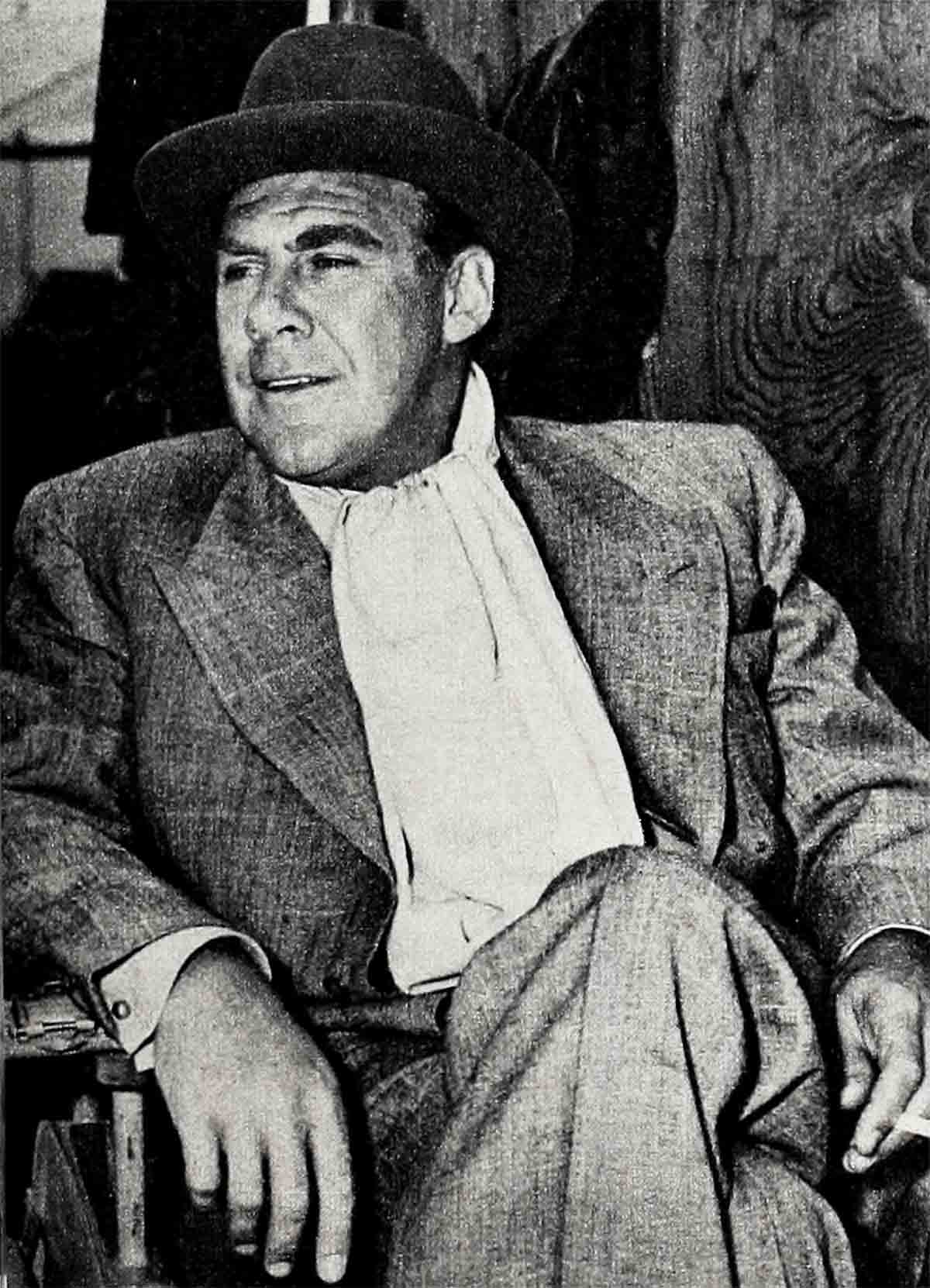
Robert Mitchum is always reading that he’s an interesting character. Being an obliging feller, he does his best to live up to what his press agents write. He fabricates fascinatingly. Recently he told a reporter that the guard ordered by boss Howard Hughes to protect his body was getting into his hair. “He even came into our bedroom when my wife was getting dressed,” said Robert. Came the dawn, I mean the next edition. The bodyguard threatened to knock his block off. Bob, who is really a nice quiet guy, went home in a hurry to avoid a really interesting front page story!
I suppose it’s hard to believe you’re like everyone else when you hear that sweet applause day in and day out. Robert Walker and I were discussing the before-and-after actor change recently. “You can’t help changing,” said Bob. “The fame, the money, the adulation, of course it goes to your head.” Of course. But the fundamentally fine people level out after the first glorious spin.
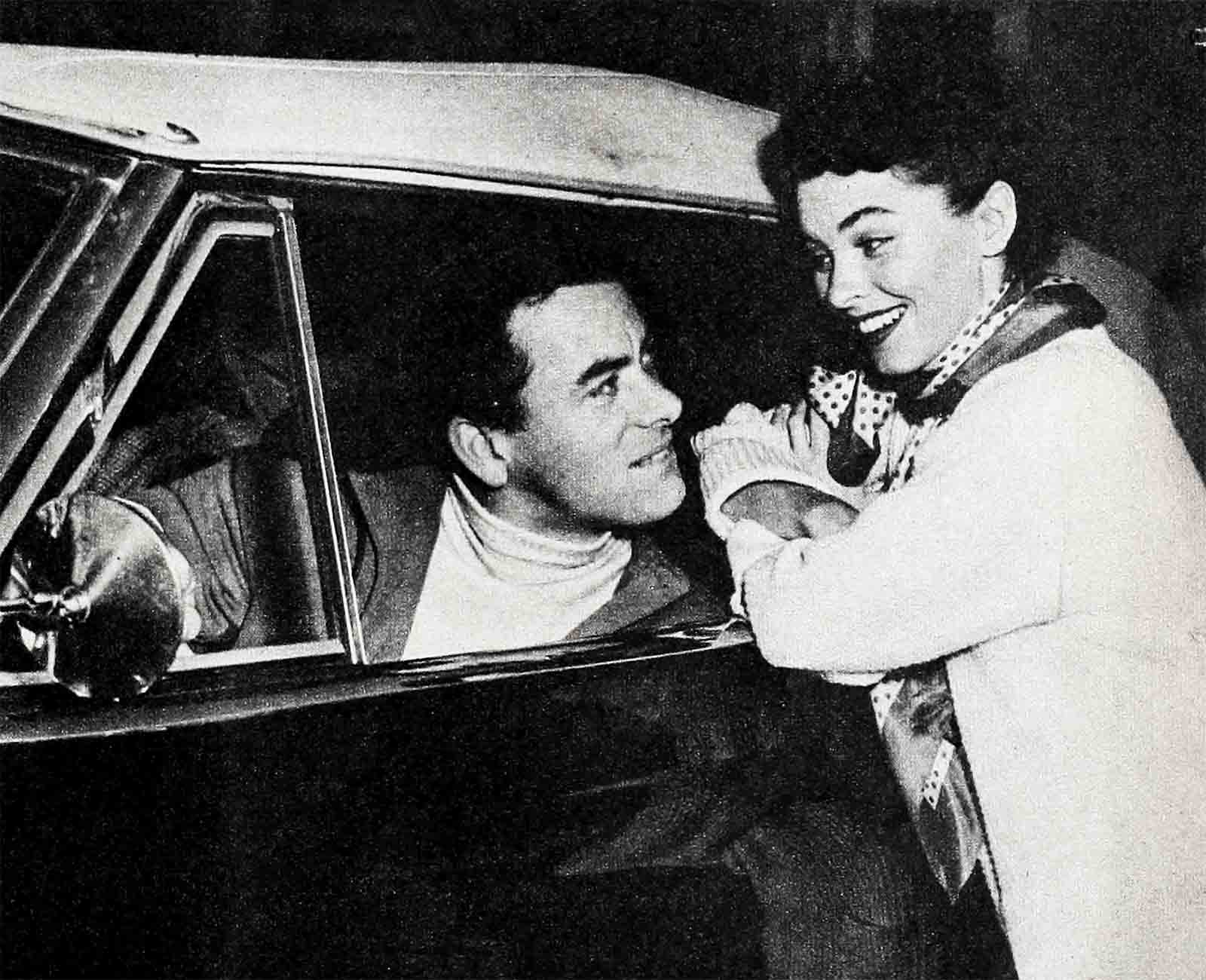
To go back to Bob Hope. If he’s never again mentioned in a column or a magazine, he could coast until he’s ninety with the wonderful things that have been said and printed already. But with Bob it isn’t only “Thanks for the Memory,” it’s a “Thanks, forever.” Only Hope could have done this. When he returned from his last gruelling flying tour, twenty-five cities in twenty-five days, he was met at the airport here by wife Dolores, plus the airline press photographer. It was two in the morning. Most tired stars would have said “Nuts,” then made a dash for auto and home. Bob not only posed willingly for a dozen shots, but he made jokes to make the photographer feel less tired!
Robert Taylor has never been difficult, even when he was getting the gush and goo about how beautiful he was. (It was more atomic than the Van Johnson discovery.) Bob is the honey darling of the M-G-M lot, and a pleasure to talk to and write nice items about.
They say that Mario Lanza is beginning to believe his publicity. I’m told he threw a big tantrum on the set when the handling of his recordings was not to his liking. Well, I write as I find. And I still find Mario modest.
When Errol Flynn arrived in Hollywood, Warners paid him $75 a week. After “Captain Blood,” Errol was publicized as a swashbuckling, very brave character from ’way back in Ireland. He once was a clerk in Sydney, Australia, and was, at one time, I believe, a traffic cop in New Guinea. Believing in fantasy, ignoring facts, has paid off for Errol. His current $200,000 a picture makes it possible for him to live as a swashbuckling Prince.
Humphrey Bogart won the Least Cooperative Movie Star lemon last year from the Women’s Press Club. And believe you me, this is never an accident. Bogart, who used to be such a lamb to his press public, should really stop reading his publicity and get back in the old intelligent groove. It was shocking to read the following conversation with Bogart in Erskine Johnson’s column:
E.J.: “That Martha Stewart certainly did a wonderful job in your picture ‘In a Lonely Place.’ ”
H.B.: “Martha Stewart, who dat?”
E.J.: “She was in your picture, remember?”
H.B.: (Long Pause) “Oh . . . yes.”
George Sanders didn’t wait for his career to fall apart, before falling off that puffed-up pogo stick he used to ride. I’m not easily scared but this guy used to make me tremble, mostly with rage at his supercilious silliness. Until I read too much of his publicity and said to him one day on the set, “Mr. Sanders, I read where you don’t care about getting your name in print. That’s fine with me. I shan’t bother you.” “Who said so?” demanded George very indignantly. He’s been a cooperative cutie-pie ever since.
They tell me that Paul Douglas is getting to be just like Sanders used to was. But I don’t think so. Like Bing Crosby, Paul just doesn’t care. I think Paul is too busy playing the feminine field to have time to read his publicity, good or bad. In case he wants to know, it’s been good, so far.
Harry Cohn believes that John Ireland believed too much of Dick Haymes’s publicity! Because it wasn’t until John married Dick’s number one wife, Joanne Dru, that he decided to hate the movies he was getting at Columbia. So they let him go, with a long string attached, twenty-five per cent of John’s picture profits with other producers to be paid to Columbia and Cohn. John, who complained he wasn’t getting good parts, immediately signed to play the heavy in “The Return of Jesse James,” for a non-major company!
Mary Pickford had an interesting attitude towards publicity. She didn’t read it! “The good will make me conceited, the bad might make me unhappy,” said Mary. I think she said something there. Mary definitely wears the same size in hats in private life, today, as when she starred in “The New York Hat,” forty years ago!
THE END
—BY SHEILAH GRAHAM
It is a quote. PHOTOPLAY MAGAZINE JULY 1950





No Comments